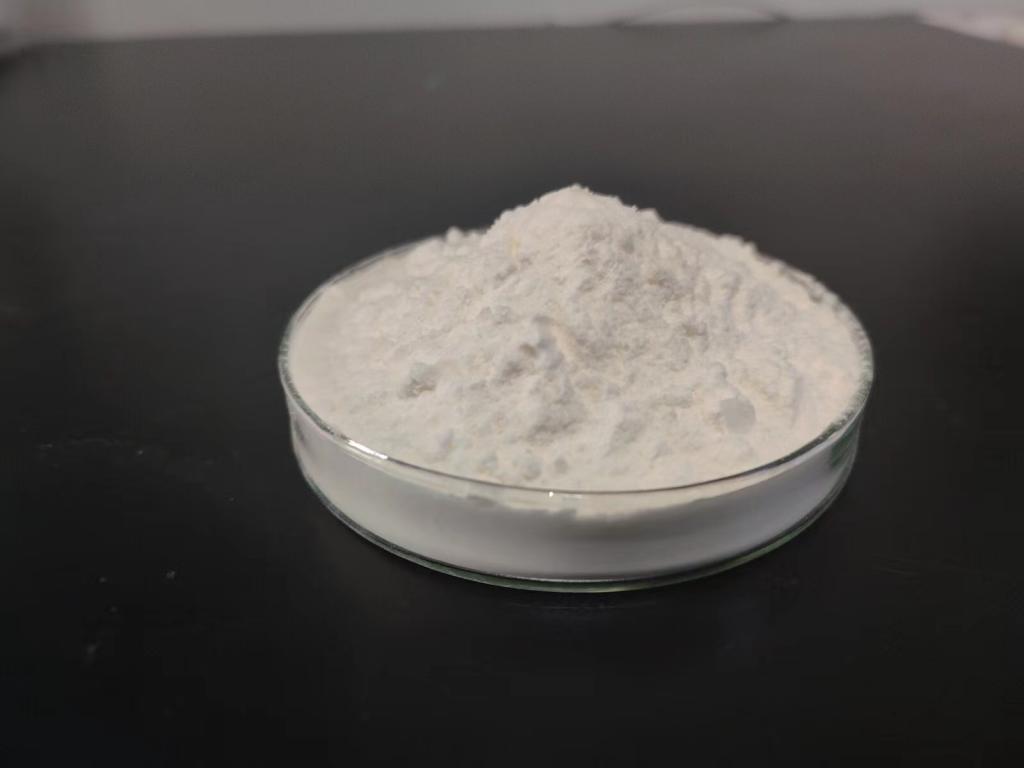Tel:+8618231198596

News
 CONTACT
CONTACT
 CONTACT
CONTACT
- Linkman:Linda Yao
- Tel: +8618231198596
- Email:linda.yao@dcpharma.cn
- Linkman:CHARLES.WANG
- Department:Overseas
- Tel: 0086 0311-85537378 0086 0311-85539701
News
ε-Polylysine hydrochloride's applications in the preservation of sauces and condiments.
TIME:2024-05-16
Mechanisms of Action:
ε-Polylysine hydrochloride exerts its antimicrobial activity primarily by disrupting microbial cell membranes. As a cationic polypeptide, ε-Polylysine hydrochloride binds to the negatively charged phospholipids present in bacterial and fungal cell membranes, leading to membrane destabilization and permeabilization. This disruption results in leakage of intracellular contents, loss of membrane potential, and ultimately, cell death. Due to its broad-spectrum antimicrobial activity, ε-Polylysine hydrochloride is effective against a wide range of bacteria, yeasts, and molds commonly found in sauces and condiments.
Applications in Preservation:
Antimicrobial Protection: ε-Polylysine hydrochloride can be incorporated into sauces and condiments as a natural preservative to inhibit microbial growth and extend shelf life. By controlling spoilage microorganisms and pathogens, ε-Polylysine hydrochloride helps maintain product quality and safety, reducing the risk of foodborne illness.
Spoilage Prevention: In sauces and condiments with high water activity, such as salsa, ketchup, and barbecue sauce, microbial spoilage can occur rapidly, leading to off-flavors, odors, and texture changes. By adding ε-Polylysine hydrochloride to these products, microbial contamination can be minimized, prolonging shelf life and ensuring consumer satisfaction.
Clean Label Formulations: As consumers increasingly seek clean label and natural food products, ε-Polylysine hydrochloride offers a natural preservation solution for sauces and condiments. Its natural origin and safety profile make it suitable for clean label formulations, meeting consumer demand for healthier and more transparent food options.
Formulation Considerations:
When incorporating ε-Polylysine hydrochloride into sauces and condiments, several formulation considerations should be taken into account:
Compatibility: ε-Polylysine hydrochloride should be compatible with other ingredients and additives commonly used in sauces and condiments, ensuring stability and efficacy in the final product.
Concentration: The concentration of ε-Polylysine hydrochloride may vary depending on factors such as product pH, water activity, and desired shelf life. Optimization of ε-Polylysine hydrochloride concentration is essential to achieve effective microbial control without impacting product quality or sensory attributes.
Processing Conditions: The processing conditions, including temperature, mixing, and packaging, may affect the stability and distribution of ε-Polylysine hydrochloride in sauces and condiments. Careful consideration of processing parameters is necessary to ensure uniform distribution and consistent preservation effects.
Regulatory Considerations:
In many countries, ε-Polylysine hydrochloride is approved as a food additive with established maximum residue limits (MRLs) for various food products. However, its use in specific applications, such as sauces and condiments, may be subject to regulatory approvals and considerations, particularly regarding maximum permitted levels, labeling requirements, and safety assessments. Manufacturers and processors interested in incorporating ε-Polylysine hydrochloride into sauces and condiments should ensure compliance with relevant regulatory requirements and obtain necessary approvals before commercial use.
Benefits and Future Prospects:
The use of ε-Polylysine hydrochloride in the preservation of sauces and condiments offers several benefits:
Extended Shelf Life: By inhibiting microbial growth, ε-Polylysine hydrochloride helps extend the shelf life of sauces and condiments, reducing food waste and improving economic sustainability.
Enhanced Food Safety: ε-Polylysine hydrochloride controls microbial contamination, reducing the risk of foodborne illness and ensuring product safety for consumers.
Clean Label Formulations: ε-Polylysine hydrochloride enables the development of clean label formulations, meeting consumer demand for natural and minimally processed foods without compromising on safety or quality.
Future prospects for the application of ε-Polylysine hydrochloride in the preservation of sauces and condiments include:
Formulation Optimization: Continued research and development efforts aimed at optimizing ε-Polylysine hydrochloride formulations for sauces and condiments, considering factors such as concentration, compatibility, and processing conditions.
Consumer Acceptance: Consumer education and communication initiatives to increase awareness of ε-Polylysine hydrochloride's benefits in preserving sauces and condiments, addressing any concerns or misconceptions related to its use.
Regulatory Support: Collaboration with regulatory authorities to establish clear guidelines and standards for the use of ε-Polylysine hydrochloride in sauces and condiments, ensuring consistency and transparency in regulatory requirements across different regions and countries.
Market Expansion: Expansion of ε-Polylysine hydrochloride's presence in the sauces and condiments market, including partnerships with food manufacturers and processors to incorporate ε-Polylysine hydrochloride into a wider range of products, catering to diverse consumer preferences and dietary needs.
Conclusion:
ε-Polylysine hydrochloride offers effective preservation solutions for sauces and condiments by controlling microbial contamination and extending shelf life. Its broad-spectrum antimicrobial activity, natural origin, and safety profile make it a valuable ingredient for food manufacturers seeking to ensure product quality and safety while meeting consumer demand for clean label and minimally processed foods. With continued research, regulatory support, and industry collaboration, ε-Polylysine hydrochloride's applications in the preservation of sauces and condiments are poised to grow, contributing to safer, healthier, and more sustainable food products for consumers worldwide.
- Tel:+8618231198596
- Whatsapp:18231198596
- Chat With Skype







